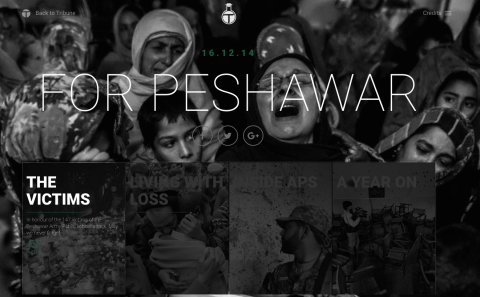
The Online News Association announced that The Express Tribune’s “For Peshawar” project is a finalist for an Online Journalism Award. ICFJ Knight Fellow Shaheryar Popalzai helped the Tribune to plan the story content and presentation for the project. He also managed its technical development. The Express Tribune is the only individual news organization outside the United States, Canada and Europe to be shortlisted for this year’s awards, which will be presented September 17 at the ONA conference in Denver.
The Express Tribune published “For Peshawar” on the first anniversary of a terrorist attack that killed 147 people, most of them children, at an army school in northern Pakistan. The data-rich story is an online memorial for the victims with in-depth analysis about how the attack unfolded on Dec. 16, 2014, and what has happened since.
“For Peshawar” included 18 stories and a yearbook style memorial to the victims as well as many videos and photos. “We knew the project was ambitious and we managed to pull it off. It’s an honor to be recognized for this story in particular and be nominated along with such big names in the industry,” said Shayan Naveed, Tribune Labs editor.
“For Peshawar” was the Tribune’s first large-scale digital story that required special collaboration in the newsroom. “Reporters and editors from multiple print desks worked in different media, with some contributing video and audio,” Popalzai said. “Anytime print reporters work on digital is a step towards change in any newsroom. They go beyond just collecting a story in words.”